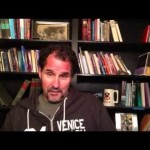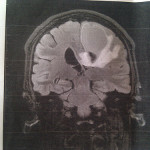We run our website the way we wished the whole internet worked: we provide high quality original content with no ads. We are funded solely by your direct support. Please consider supporting this project.
A Rational Defense of Belief in God
The New York Times recently posted a review of Alvin Plantinga’s book, Where the Conflict Really Lies: Science, Religion, and Naturalism. In it, Plantinga argues on philosophical grounds that, among other things, theism is not in conflict with science, that a belief in naturalism along with evolution is contradictory, and that “Faith…is another basic way of forming beliefs, distinct from but not in competition with reason, perception, memory, and the others.” It’s a dense, but great read. The video above is a short interview with Plantinga that is also illuminating.
From the book review:
Plantinga holds that miracles are not incompatible with the laws of physics, because those laws determine only what happens in closed systems, without external intervention, and the proposition that the physical universe is a closed system is not itself a law of physics, but a naturalist assumption. Newton did not believe it: he even believed that God intervened to keep the planets in their orbits. Plantinga has a lengthy discussion of the relation of miracles to quantum theory: its probabilistic character, he believes, may allow not only miracles but human free will. And he considers the different interpretations that have been given to the fine-tuning of the physical constants, concluding that the support it offers for theism is modest, because of the difficulty of assigning probabilities to the alternatives. All these discussions make a serious effort to engage with the data of current science. The arguments are often ingenious and, given Plantinga’s premises, the overall view is thorough and consistent.
The interest of this book, especially for secular readers, is its presentation from the inside of the point of view of a philosophically subtle and scientifically informed theist—an outlook with which many of them will not be familiar. Plantinga writes clearly and accessibly, and sometimes acidly—in response to aggressive critics of religion like Dawkins and Daniel Dennett. His comprehensive stand is a valuable contribution to this debate.
Category: General
Tags: Belief, Evolution, Faith, Naturalism, Philosophy, Science
Related Reading

Video Q&A: Do you think Jehovah’s Witnesses and Mormons are saved?
Does Greg believe that everyone goes to Heaven regardless of their beliefs? Find out here.

Greg Uncovers Flaws in Aquinas, and It Could Change Everything
In this episode Greg shares some intriguing insights about Aquinas and Aquinas’ concept of God.

Hellenistic Philosophy and the Problem of Chalcedon
As some of you know, I’ve been immersed in Hellenistic philosophy for the last several years as part of my research for a forthcoming book tentatively titled The Myth of the Blueprint. My goal is to demonstrate the influence that certain aspects of Hellenistic philosophy had on the early church’s thinking about God, providence and…

Lighten Up: Existential French Cat
Greg used to be into the existentialists quite a bit. Sartre and Camus would love this cat. (Thanks to Rachel Held Evans for the heads-up.)

Why Did God Heal or Not?
In 1996 a 27-year-old man in my church named David was diagnosed with an inoperable brain cancer. The doctors decided to send David to the Mayo Clinic to receive some experimental treatments on the slim hope these might at least prolong his life. The night before David left, I and a dozen other people went…

Sermons: A Vision of Beauty
In this short sermon clip, Greg Boyd discusses how God, science, and nature can work together to tell us the story of our universe. In the full sermon, Greg begins the series on Revelation and shows us three things to keep in mind when reading the book of Revelation. You can view the full sermon…
